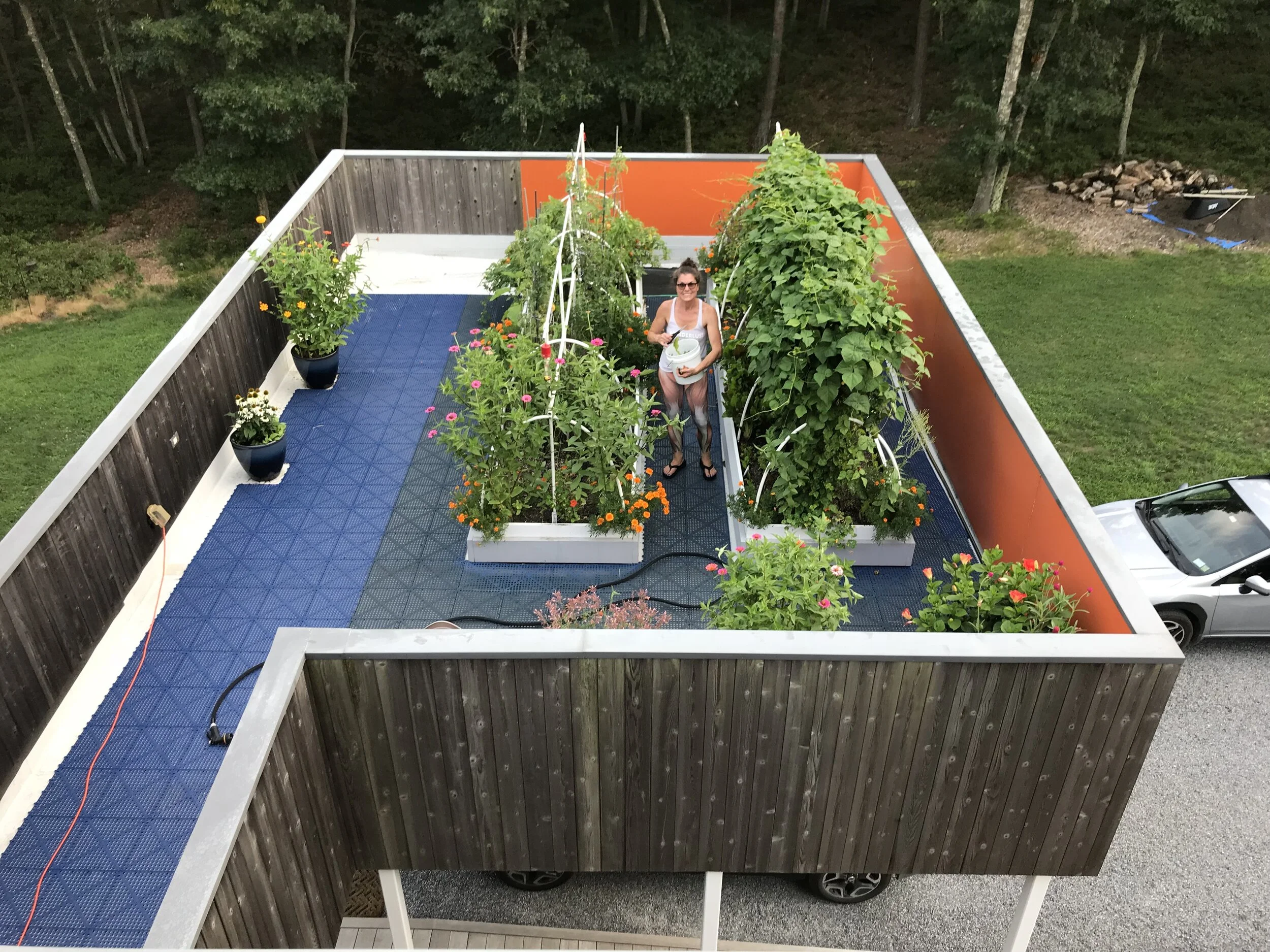Peconic Community School Shares their Progressive Perspective
/“The more closely he has observed the tugboat, the more deeply he has been stirred by it, and the more eagerly and vividly he will strive to recreate it, in building, in drawing, in words.” ― Caroline Pratt
The North Fork Education Initiative’s second annual Share: A Celebration of Education fundraiser and cocktail reception was held last Sunday at the Golden Earthworm Organic Farm in Jamesport, N.Y. to benefit the Peconic Community School, a holistic elementary school that uses a project-based, arts-integrated curriculum to deepen learning and promote creativity for children ages 3-11. The evening was enchanting as the Peconic Community School shared their progressive perspective on the upcoming school year and the future ahead.
Supporters from the community gathered on the beautiful grounds of the Golden Earthworm Farm to hobnob, sip and nosh on locally sourced farm fare by local chefs: Michael Meehan of H2O Seafood Grill, Noah Schwartz of Noah’s, Lia Stanco Fallon of The Riverhead Project, Amelia & Michael Hegeman of Healthy Gourmet, Todd Jacobs of Fresh, an artisanal frozen treat by Joe & Liza's Ice Cream and pours by the Shinn Estate Vineyard, Jamesport Vineyards and Blind Bat Brewery. The Golden Earthworm Farm has served as an outdoor classroom for the Peconic Community School kids, where they plant, harvest and spend time with the animals.
There were silent auction items from the East End to bid on to benefit the Peconic Community School, student gallery work on display and live music was performed by The Soul Jazz Train Express; a band who is on a mission to expose kids of all ages to their unique melodies; an appropriate tone for a progressive affair.
For Kathryn Casey Quigley and her sister Elizabeth Casey-Searl growing up on the North Fork has given them a strong sense of place and an appreciation for its natural beauty. So much so that in 2010 they and several like-minded people in the community came together to launch the North Fork Education Initiative, a nonprofit on the North Fork of Long Island that offers a new educational model for the community through an independent school—Peconic Community School— and programs that foster community, creativity and sustainability for all on the East End of Long Island.
In Fall of 2012, the Peconic Community School opened its doors to its first group of 9 students. This Fall, they will be expanding to include a pre-school combined with their K-5; they presently have 26 students enrolled and counting. “One of the philosophies we follow at our school is place-based education. The surrounding area becomes the classroom and a deep understanding and intimate knowledge of our local farms, vineyards, and waterways is an ongoing part of our curriculum and school culture,” says Quigley, founding member of the North Fork Education Initiative and Co-Executive Director of the Peconic Community School.
The guest speaker for the evening was Lea Abrams; a respected and revered educator for 30 years and formerly a beloved teacher of the Ross School, in East Hampton and Bridgehampton. Abrams spoke about the difference between traditional and progressive teaching methods.
Traditional: everything that can be studied has a limitation.
Progressive: everything that can be studied is boundless.
Her speech jogged my memory back to 1st grade when I was seven years old. The entire class was tasked to participate in a color by numbers winter mural; it was enormous and spanned the entire classroom wall. As a child I was creatively curious and asked lots of questions, so much so that the teacher would answer, “This is the way it is.” When it was my turn to color I turned to one of my classmates and said, “Wouldn’t it be cool to color part of the snow blue?” My rationale was the snow casts a blue color at times when the sunlight shines on it. I decided not to ask the teacher for permission because I knew she would not want to hear my logic beyond the task at hand. So I quickly began to tag the snow areas with blue chalk; I wanted to make a statement, I wanted to be heard.
Some might say I was a troublemaker and should have done as instructed; I would say I was thirsty for that teachers undivided attention. When the teacher saw what I had done, she reprimanded me in front of the entire class and stated, “Laura will never participate in a mural of any kind, ever again, you ruined it for everyone.” I felt as if I committed a crime. In that moment I made a choice, to either crawl into my shell and squander all creative and inquisitiveness in my being or that I would be an artist where I can visually and verbally express myself; I chose the latter. Today, I am a graphic designer and now blogger, freely creating and communicating. How many children do you think have a similar story and tragically went the other way, shouldn’t students be empowered?
"The ultimate aim of education is to enable individuals to become the architects of their own education and through that process to continually reinvent themselves." - Elliot W. Eisner
“At the Peconic Community School we approach education through the lens of the child: social, emotional, spiritual and academic. And rather than being bound to one particular singular educational philosophy we are bound to the child,” says Quigley. Their guiding principles are rooted in: exploration and discovery, cooperation and collaboration, creativity and imagination, conversation and sustainability, wonder and reverence, respect and responsibility, multiple intelligences and academic excellence.
As a parent the stories you might hear are: “My child does not like school, they do not understand him,” “My daughter feels lost,” “Mom, why don't they listen to me,” “Dad, I do not learn anything in school, it is so boring.”
And after 1 year here is what they are hearing: “Mommy, I'm not too sick to go to school, can I go to school all summer?” “When do I get to go back to school again?”
“It takes a village to raise a child, but a community to truly change the narrative to shift these stories,” says Quigley.
We can become agents for change in our schools, even in our public school systems. The Peconic Community School’s holistic approach is a powerful model for our children, for the generations to come and the community at large.
For more information contact: info@northforked.org and to learn more about the Peconic Community School: www.peconiccommunityschool.org.



























